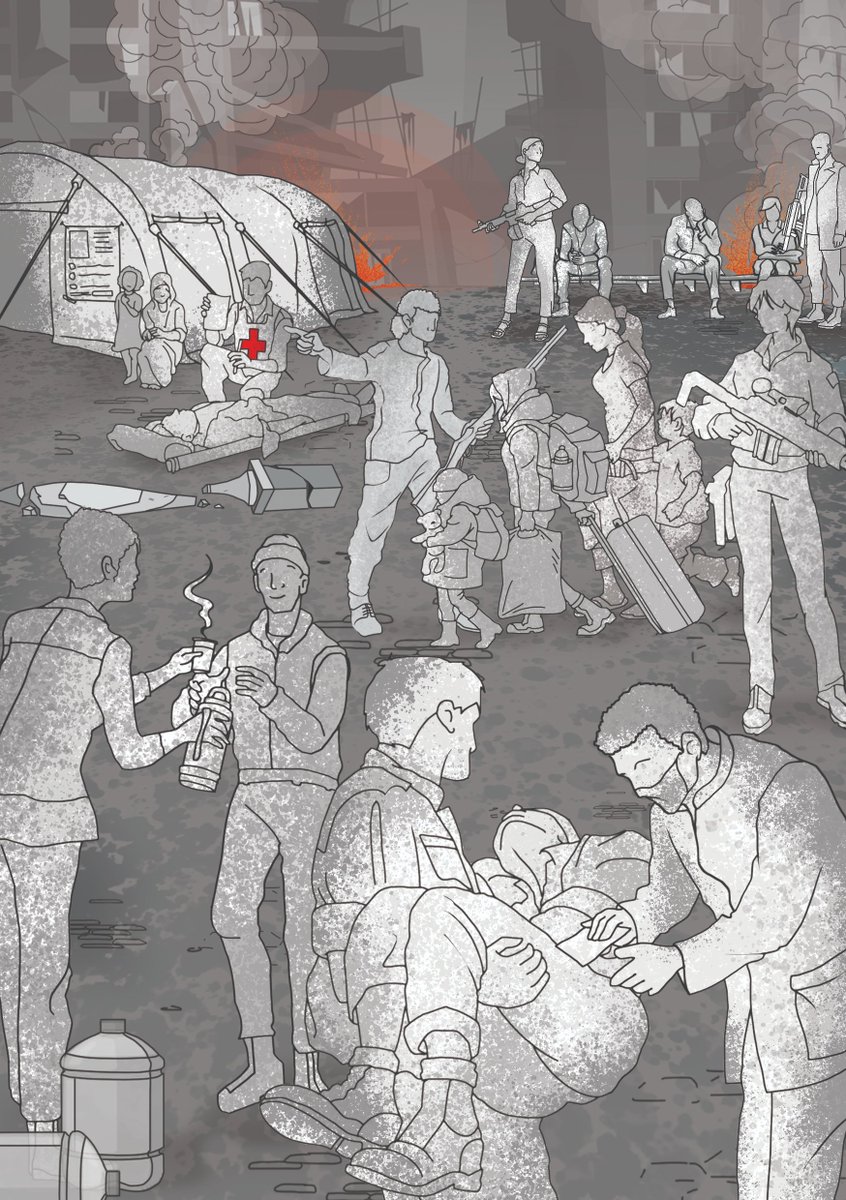ICRC talks to armed groups across frontlines to ensure that all people caught up in urban warfare receives the protection they're entitled to under the rules of war #IHL . Here's what we're telling them 🧵icrc.org/en/document/re…
1/10 When fighting in urban areas, reducing or preventing civilian harm civilian harm is the right thing to do from a legal, ethical, moral or religious perspective.
2/10 Attacks should only happen at times when few civilians are nearby. If it is impossible to conduct operations in areas where there are fewer people present, then the duration, intensity and area of fighting should be limited.
3/10 Gathering information to identify infrastructure that supports vital services like water, electrical or medical facilities, religious sites, schools and culturally important sites is crucial to prevent and reduce civilian harm. 

4/10 Planning carefully around the civilian environment, population density and movement also helps optimizing the timing of an attack. Such info must be cross-checked and continuously updated so it is reliable and accurate. 

5/10 Military positions should not be set up or operations conducted around civilians. Clear and simple warnings of an attack, allowing people time to leave, is one way to reduce civilian harm.
6/10 It may be necessary to pause or delay an operation to allow civilians to flee. It is safe to assume that not all civilians have left and to stay on the lookout to keep protecting those who cannot or do not want to leave. 

7/10 Each type of weapon carries specific risks: rounds from rifles and machine guns can ricochet, pass through or over a target. Blasts and fragments from explosive weapons cover large areas. Fighters must choose their weapons accordingly to minimize civilian harm. 

8/10 Weapons should always be fired accurately, using single shots from rifles or short burst from machine guns, and avoid unnecessary firing. Before firing, the target should always be 100% confirmed as not civilian. When in doubt, the shot should not be taken.
9/10 After an attack, civilians must be treated humanely and be given medical care. Rape and other forms of sexual violence is banned. Nobody can be taken hostage and civilian property must not be stolen or destroyed. Humanitarian workers must be able to do their work. 

10/10 Harming civilians is punishable, condemned at home and across the world, and will lead to a loss of public support. Reducing or preventing civilian harm preserves a level of humanity during and after fighting. 

• • •
Missing some Tweet in this thread? You can try to
force a refresh

 Read on Twitter
Read on Twitter



